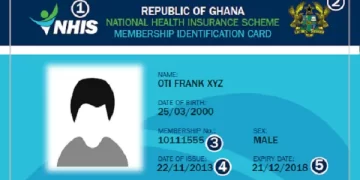The Supreme Court has ruled that an existing legislation that criminalizes unnatural sexual intercourse and prohibits both heterosexuals and homosexuals from having anal sex does not violate the 1992 Constitution.
On Wednesday (July 24, 2024), a seven-member panel of the court dismissed a suit challenging the constitutionality of Section 104 (1) (b) of the Criminal Offences Act, 1960 (Act 29), which criminalizes sexual intercourse in an unnatural manner even when it involves two consenting adults.
According to Section 104 (1) (b) of Act 29, any person above the age of 16 who has unnatural carnal knowledge with another person, even with the person’s agreement, commits a misdemeanour punishable by up to three years in jail.
Suit
Dr. Prince Obiri-Korang, a law lecturer at the University of Ghana, filed the suit, claiming that Section 104 (1) (b) of Act 29 violated Article 14 (1) of the 1992 Constitution by depriving homosexuals of the liberty to choose their intimate sexual partners and the right to engage in intimate sexual conduct without state interference.
Again, he contended that Section 104 (1) (b) of Act 29 infringed on adults’ privacy and was thus unconstitutional because it violated Article 18(2) of the 1992 Constitution, as well as discriminating against adults based on their sexual orientation, in violation of Article 17 (2).
The petitioner, who used the Supreme Court’s original competence to interpret and execute the 1992 Constitution, requested the court to declare that Section 104 (1) (b) of Act 29 violated the aforementioned fundamental principles and was thereby unconstitutional.
Read Also: Mid-year Budget Review: Ghana to implement paternity leave this year
No merit
However, the Supreme Court, presided over by Justice Paul Baffoe-Bonnie, determined that the action had no basis and rejected it. “There is no merit in this action. “In the circumstances, the entire action fails and is dismissed,” the court said.
The court did not read the complete explanation for its ruling, which it stated will be filed at the Court’s Registry in 10 days. The panel included Justices Avril Lovelace Johnson, Issifu Omoro Tanko Amadu, Emmanuel Yonny Kulendi, Ernest Gaewu, Yaw Darko Asare, and Richard Adjei-Frimpong.
Unnatural Carnal Knowledge
Section 104 of Act 29 is divided into three sections. First, Section 104 (1) (a) makes it illegal to have unnatural carnal knowledge of someone under the age of 16. Such a crime is classified as a first-degree felony, punishable by imprisonment for a period of five to 25 years.
The second element is Section 104 (1) (b) of Act 29, which makes it illegal for consenting individuals to engage in unnatural carnal knowledge. This is a misdemeanour, and it is the particular clause that Dr. Obiri-Korang requested the Supreme Court to declare illegal.
The provision’s last limb, Section 104 (1) (c) of Act 29, makes sexual intercourse with an animal a misdemeanour.
Section 104 (2) of Act 29 defines unnatural carnal knowledge as “sexual intercourse with a person in an unnatural manner or, with an animal.” Act 29 does not, however, define sex in a “unnatural manner”.
Through judicial interpretation in instances, the court has defined carnal knowledge as natural sex. In Gligah & Atizo v. The Republic, the Supreme Court, speaking via Justice Jones Dotse in an appeal against a rape conviction, defined carnal knowledge as “the penetration of a woman’s vagina by a man’s penis”.
Again, in Banousin v The Republic, the Supreme Court, speaking via the same Justice Dotse, stated that, “It is the female sex organs called the vulva and the vagina that are normally penetrated into during sexual act which can qualify to be carnal knowledge under sections 98 and 99 of Act 29.”
Statement of Case
In his statement of case to support his complaint, Dr. Obiri-Korang claimed that the language of Section 104 (1) (b) of Act 29 and its application touched not just homosexuals but also females who used dildos and vibrators to satisfy themselves.
“The term unnatural carnal knowledge may include penetration per anum, the penetration of the female genitalia or male/female rectum with object, fellatio and cunnilingus, all of which are not exclusive to homosexuals.”
The lawsuit further stated that the government’s explanation for Section 104 (1) (b) of Act 29 to safeguard morals was incorrect. “This is because when it comes to morality, there is the need to distinguish ‘public morality’ from ‘private morality,” according to the case statement.
He stated that enabling the government to decide what constitutes “private morality” might result in an unacceptable violation of individual privacy.
Statement of Defence
The respondent in the lawsuit, Attorney-General Godfred Yeboah Dame, dismissed the plaintiff’s claim, arguing that Section 104 (1) (b) of Act 29 could not be considered discriminatory or illegal because it made no reference of any specific sexual orientation.
Furthermore, the A-G stated that the law could not be considered a violation of privacy since it did not include a provision for interfering with people’s privacy.
“Section 104 (1) (b) of Act 29 does not authorise anyone to enter another person’s bedroom to determine whether there has been unnatural carnal knowledge,” the A-G said in its statement of defense.



























